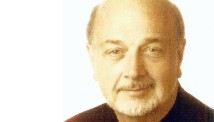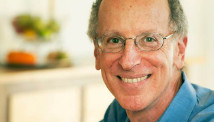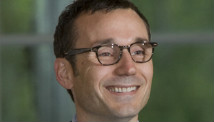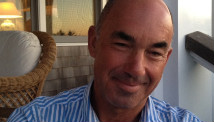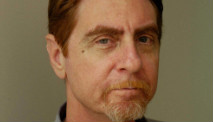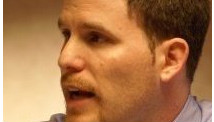SOUTH BEND, Ind. (AP) — Not long before Notre Dame played Michigan State last fall, word spread that Fighting Irish linebacker Manti Te'o had lost his grandmother and girlfriend within hours of each other.
Te'o never missed a practice and made a season-high 12 tackles, two pass breakups and a fumble recovery in a 20-3 victory against the Spartans. His inspired play became a stirring story line for the Fighting Irish as they made a run to the national championship game behind their humble, charismatic star.
Te'o's grandmother did indeed die. His girlfriend, Lennay Kekua, never existed.
In a shocking announcement Wednesday night, Notre Dame said Te'o was duped into an online relationship with a woman whose "death" from leukemia was faked by perpetrators of an elaborate hoax. The goal of the scam wasn't clear, though Notre Dame said it used an investigative firm to dig into the details after Te'o disclosed them three weeks ago.
The hoax was disclosed hours after Deadspin.com posted a lengthy story, saying it could find no record that Kekua ever existed. The story suggests a friend of Te'o may have carried out the hoax and that the football player may have been in on it — a stunning claim against a widely admired All-American who led the most famed program in college football back to the championship game for the first time since 1988.
"This is incredibly embarrassing to talk about, but over an extended period of time, I developed an emotional relationship with a woman I met online," Te'o said in a statement. "We maintained what I thought to be an authentic relationship by communicating frequently online and on the phone, and I grew to care deeply about her. "
However, he stopped short of saying he had ever met her in person or correcting reports that said he had, though he did on numerous occasions talk about how special the relationship was to him.
"To realize that I was the victim of what was apparently someone's sick joke and constant lies was, and is, painful and humiliating," he said. "In retrospect, I obviously should have been much more cautious. If anything good comes of this, I hope it is that others will be far more guarded when they engage with people online than I was."
Word of the hoax spread quickly and raised questions about whether the school somehow played a role in pushing the tale.
Notre Dame athletic director Jack Swarbrick said at a news conference that Te'o told coaches on Dec. 26 that he had received a call from Kekua's phone number while at an awards ceremony during the first week of December.
"When he answered it, it was a person whose voice sounded like the same person he had talked to, who told him that she was, in fact, not dead. Manti was very unnerved by that, as you might imagine," Swarbrick said.
Swarbrick said the school hired investigators and their report indicated those behind the hoax were in contact with each other, discussing what they were doing.
The investigators "were able to discover online chatter among the perpetrators that was certainly the ultimate proof of this, the joy they were taking," Swarbrick said. "The casualness among themselves they were talking about what they accomplished."
Swarbrick said for Te'o "the pain was real."
"The grief was real. The affection was real," he said. "That's the nature of this sad, cruel game."
Swarbrick added: "Nothing about what I have learned has shaken my faith in Manti Te'o one iota."
Swarbrick said Notre Dame did not take the matter to the police, saying that the school left it up to Te'o and his family to do so. He added that Notre Dame did not plan to release the findings of its investigation.
"We had no idea of motive, and that was really significant to us. ... Was somebody trying to create an NCAA violation at the core of this? Was there somebody trying to impact the outcome of football games by manipulating the emotions of a key player? Was there an extortion request coming? When you match the lack of sort of detail we lacked until we got some help investigating it with the risk involved, it was clear to me until we knew more we had to just to continue to work to try to gather the facts," Swarbrick said.
The Deadspin report changed all that.
Friends and relatives of Ronaiah Tuiasosopo told Deadspin they believe he created Kekua. The website said Te'o and Tuiasosopo knew each other. Attempts by The Associated Press to reach Tuiasosopo by telephone were unsuccessful.
As for Kekua, Deadspin said she does not have a death certificate. Stanford, where she reportedly went to school, has no record of anybody by that name, the website said. Deadspin said a record search produced no obituary or funeral announcement. There is no record of her birth in the news.
There are a few Twitter and Instagram accounts registered to Lennay Kekua, but the website reported that photographs identified as Kekua online and in TV news reports are pictures from the social-media accounts of a 22-year-old California woman who is not named Lennay Kekua.
Te'o talked freely about their relationship after her supposed death and how much she meant to him.
In a story that appeared in The South Bend Tribune on Oct. 12, Manti's father, Brian, recounted an anecdote about how his son and Kekua met after Notre Dame had played at Stanford in 2009. Brian Te'o also told the newspaper that Kekua had visited Hawaii and met with his son. Brian Te'o told the AP in an interview in October that he and his wife had never met Manti's girlfriend but they had hoped to at the Wake Forest game in November. The father said he believed the relationship was just beginning to get serious when she died.
The Tribune released a statement saying: "At the Tribune, we are as stunned by these revelations as everyone else. Indeed, this season we reported the story of this fake girlfriend and her death as details were given to us by Te'o, members of his family and his coaches at Notre Dame."
The week before Notre Dame played Michigan State on Sept. 15, coach Brian Kelly told reporters when asked that Te'o's grandmother and a friend had died. He said Kekua had told Te'o not to miss a game if she died. The linebacker turned in one of his best performances of the season and his playing through heartache became a prominent theme during the Irish's undefeated regular season. He finished second in Heisman voting.
"It further pains me that the grief I felt and the sympathies expressed to me at the time of my grandmother's death in September were in any way deepened by what I believed to be another significant loss in my life," Te'o said in his statement.
"I am enormously grateful for the support of my family, friends and Notre Dame fans throughout this year. To think that I shared with them my happiness about my relationship and details that I thought to be true about her just makes me sick. I hope that people can understand how trying and confusing this whole experience has been."
Te'o and the Irish lost the title game to Alabama, 42-14 on Jan. 7. He has graduated and was set to begin preparing for the NFL combine and draft at the IMG Academy in Bradenton, Fla., this week.
"Fortunately, I have many wonderful things in my life," he said in his statement, "and I'm looking forward to putting this painful experience behind me as I focus on preparing for the NFL draft."

